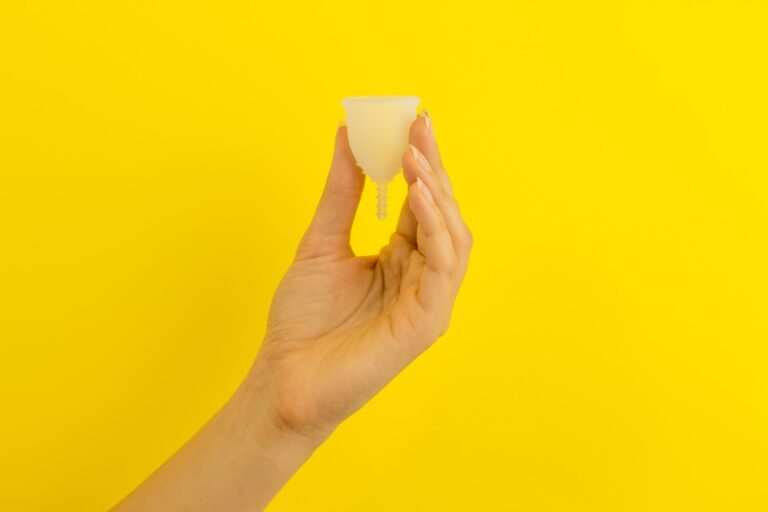Having sex doesn’t delay your period on its own. However, if you have sex during your fertile window or during an orgasm it can cause your hormones to get all jazzed up and may temporarily delay your period.
But if you’re worried about a late period it is also important to consider other factors.
Hormones
Many people think that having sex can delay their period because of the rise in hormones like oxytocin. This is a myth and isn’t true. However, orgasm can help alleviate menstrual cramps. This is because it causes the release of endorphins which are a natural pain reliever.
Having sex may cause a lull in your menstrual cycle and affect libido, but this is only because the ovulation window is narrower during sex. However, sexual activity doesn’t change the length of your menstrual cycles or make them more or less regular.
One exception to this is if you become pregnant. Pregnancy can stop your periods, and this is why it’s important to use protection at all times. However, if you are not using protection and you get a late or missed period, it is important to take a pregnancy test as soon as possible.
Irregular periods can be caused by a lot of things including stress, certain health conditions and pregnancy. If you are unsure why your period is irregular, speak to a doctor who can offer advice and support. They may be able to prescribe medication that can delay your period such as norethisterone tablets. These are taken three a day starting 3 days before you expect your period to start. It can take up to 3 months for a period to become regular after having this medication.
Stress
Stress is a normal response to changes in our environment and can affect everyone differently. Depending on the type and length of stress, it can cause hormonal imbalances that alter menstrual cycles and ovulation. This can result in irregular periods and heavy bleeding.
When you are stressed, your body goes into a “fight or flight” mode and your hormones can get out of whack. This can lead to premenstrual symptoms, like cramps, bloating, fatigue and nausea. It can also interfere with the production of LH, which can delay ovulation and prevent a surge in progesterone. This can lead to long, drawn-out periods or even chronic anovulation, which is when the period stops altogether.
While sex can trigger a release of oxytocin, which may help alleviate some PMS symptoms, it can’t change the hormonal fluctuations that affect the menstrual cycle. It is important to seek out methods of reducing your stress levels and to monitor how these factors are affecting your body.
If you notice that your periods are coming later than usual, it is a good idea to talk to a health care provider. Irregular periods can be a sign of other health issues, and it’s always best to rule out pregnancy before starting a new birth control method or attempting treatment for any other health issue.
Irregular cycles
A normal menstrual cycle lasts 28 days, but there’s a wide range of what’s considered “normal.” If you have an irregular cycle, it may be due to a number of factors. Things like stress, exercise, weight change, birth control, and a health condition can all affect how quickly your hormones rise and fall each month and how long your period lasts. If you have a couple of irregular periods per year, it’s not necessarily cause for concern, but if you start skipping periods for three or more months in a row, talk to your doctor.
Having sex on your period is safe and normal, but it’s important to use protection to prevent pregnancy or an STI like HIV. During sexual activity, the body releases feel-good hormones like dopamine and oxytocin that can decrease period pain and cramping. Using protection can also help reduce the risk of infection from blood-borne pathogens.
If you have a shorter menstrual cycle, ovulation might occur closer to the end of your period or even after it. If you have unprotected sex during this time, it’s possible to get pregnant since sperm can live in the reproductive tract for up to five days. However, it’s less likely that sex on your period will delay your next one because ovulation is usually delayed by the hormonal changes caused by sexual activity.
Pregnancy
While it’s very unlikely, if a woman has sex during her period it is possible to get pregnant. This is more likely for women with shorter cycles since their ovulation time occurs closer to the end of their period. Sperm can live up to 5 days inside the vagina, so if a woman ovulates on Day 11 of her menstrual cycle and has sex on the last day of her period, it is possible to fall pregnant.
However, this is very rare and if it happens, it’s important to seek medical attention. Having sex during pregnancy can also cause spotting or bleeding due to increased sensitivity of the cervical and vaginal tissues. This spotting or bleeding can be light and is often mistaken for a period. This spotting is called implantation bleeding and is caused by the fertilized egg attaching to the uterine lining.
If a woman becomes pregnant, her hormones will no longer follow the same pattern each month and she’ll start to have a one-off, 9 month pregnancy cycle. This means that she can no longer predict the exact date of her period, but can still be fairly accurate as long as the sex and hormonal changes take place within the 9 month window. It’s important to be careful and use contraception to prevent pregnancy, as it’s impossible to know when she will ovulate each month.
See Also:



